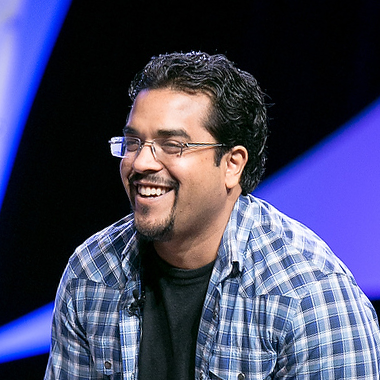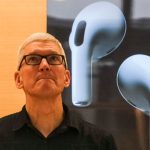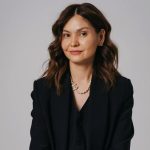In our era of online education, learning is more accessible than ever before.
With more choices than ever before, Anik Singal sets himself out from the crowd by delivering useful, insightful, and actionable information to businesses looking to scale – fast.
CEO Today speaks to Anik Singal, a battle-hardened veteran in the entrepreneurship space that shares insight, guidance, and educational frameworks with startups and brands looking to scale.
Singal is on a mission to bring consultants, agencies, coaches, and information marketers the knowledge they need to thrive. He focuses on offering expertise to those looking to scale, teaching the world to grow their brands and spread their messages across the global stage.
What Inspired you to begin sharing your knowledge about the world of entrepreneurship?
Ever since high school, I’ve always wanted to make an impact. I would look around and see a clear line between those that had respect and the hard work they had put in. Whether it was friends or family, people admired those that put in the work.
When I arrived at college and started pre-med, I quickly realized that all this hard work wouldn’t have a payoff point. The idea of spending years to get my degree, only to then have a relentless job that was 12 hours a day, didn’t resonate with me in the way it once did. From that point onward, I started researching the idea of controlling my destiny.
The world of entrepreneurship instantly struck me as an arena where you had more control over your pathway. Entrepreneurs work hard and have tough lives, but they’re able to choose their course. Once I started seeing success, someone that had no training, no specific special skills, and no starting money, I realized that anyone could do this.
I struggled for 18 months before I had my breakthrough. I turned to education because I believe that anyone can become an entrepreneur and embrace their life of choice, without waiting those 18 months.
When reviewing your mission statement, you comment on providing an alternative option to traditional schooling. What made you focus on the online education format?
In the post-COVID world, we’ve already seen the power that digital education has. While I still firmly believe that in-person schooling works well – I funded a 24,000 sq ft events facility – the world is increasingly going digital.
Online schooling allows you to teach someone in any part of the world. Without geographical and location barriers, you can share knowledge internationally. Not only does this open up accessibility for students, but it allows educators to push their messages further than they ever thought possible.
Online education breaks down barriers for everyone.
What advice do you have for legit entrepreneurs that are looking to scale their businesses?
Your product is king. You have to obsess over it, nail down your offer, and discover the value of what you’re doing. By putting your product above all else and continuously iterating, you’ll make it better and better over time. If you want to see results, your product can’t just be a fad, it has to deliver real value.
When you have a flawless product, you’ll be able to turn customer referrals into your biggest champion. People will love your product and tell their friends and family about it, leading to organic growth and engagement. When you couple that with a paid ads strategy, your business will snowball.
But, without a solid product first, you’ll be stuck in a loop of throwing paid ads at an unattractive offering. Your product has to always come first.
Online, you’ve discussed adversity to risk as a barrier that holds entrepreneurs back. Could you expand upon that idea?
Throughout our lives, we’re always taught to play it safe. When we’re a child, we’re told to be careful, not to do certain things, or to worry about how we act as it could impact our futures. Yet, if we think back, so much of childhood is risk-averse. We learn by exploring, touching, feeling, and interacting with the world.
It’s our true nature to take risks and discover new things. But, over time, we let people tell us that taking risks is the wrong thing to do. It’s a protective mechanism that becomes our default status. Entrepreneurs need to understand that there is value in risk. Risk-reward comparisons are a part of the game.
By focusing on the potential upsides of risk, you’re able to overcome your default survival mechanism and make smarter business decisions. Don’t let a protective mechanism become your final mechanism, understand that overcoming these barriers is vital.
How can entrepreneurs review their businesses and start to identify weaknesses that are holding them back?
In your business, you’ll typically know which areas cause you the most stress. What aspects of your business do you go to sleep thinking or worrying about? If you’re worried about customer deliveries, you can trace that back to operations issues. If you’re having a hard time finding new customers, you have a marketing issue on your hands. And if you can’t keep employees, well, you might be the problem.
To discover your weaknesses, you need to become comfortable addressing those areas that stress you out. Find where the pain is, and then strengthen that area.
What sets apart your methodology from other business coaches?
I find that many business coaches tell people to create lots of little fires, hoping that they all come together to make one big fire. While that strategy works for some people, I find that it divides your attention and leads to a less effective approach.
I focus on simplicity above all else. Instead of multiple fires, you already have one fire burning – your product. All you need to do is pour gasoline on the flame. I teach people how to cultivate the product they already have. Finding a core purpose and solving problems is what I do.
While it’s a simple approach, it’s effective.
In the era of TikTok videos, YouTube shorts, and asynchronous education, how do you see this era of online education shifting the global approach to business?
This global age of digitalized media has made customers far more aware than they ever were before. Customers are exposed to more information than ever and completely control their decisions. Because of that awareness, you have to earn sales through a holistic approach.
You can’t just have one good marketing campaign anymore, as a customer can look at your brand from 17 different angles. Everything that’s connected to your brand is accessible to the customer, making you more exposed than ever before. Information travels too quickly, meaning you must stay ahead of the wave.
For most companies, that means authenticity. Customers will see right through deceit. You have to be authentic and stick to who you are and what matters to you. The fundamentals are more important now than ever.
You focus on spreading your messages across the world, passing on knowledge through chains of students to maximize your impact. How do you see that vision evolving in the future; what’s next for you?
I’ve always dreamed of fundamentally changing the world before I die. I want to look back over my life and know that I’ve made an impact. I didn’t ever want to invent something like Bill Gates or Steve Jobs. Instead, I’m taking a hacked approach to this change. Instead of changing the world by myself, I’m creating an army of people that all help to affect change.
If I can train a hundred million people to share their knowledge, I’ll have made a huge impact. Using chains of education, is more achievable than you might first think. If I train 1,000,000 people and they all share that knowledge with 100 people, I’ll have achieved my goal. Equally, if I train 100,000 people and they all share their knowledge with 1,000, I’ll get the same result.
Approaching change through numbers allows me to leverage my audience to change the world. My vision will change with it as I continue to grow and evolve. All I know is that I’ll have a community of educators behind me, all working toward a common goal.











